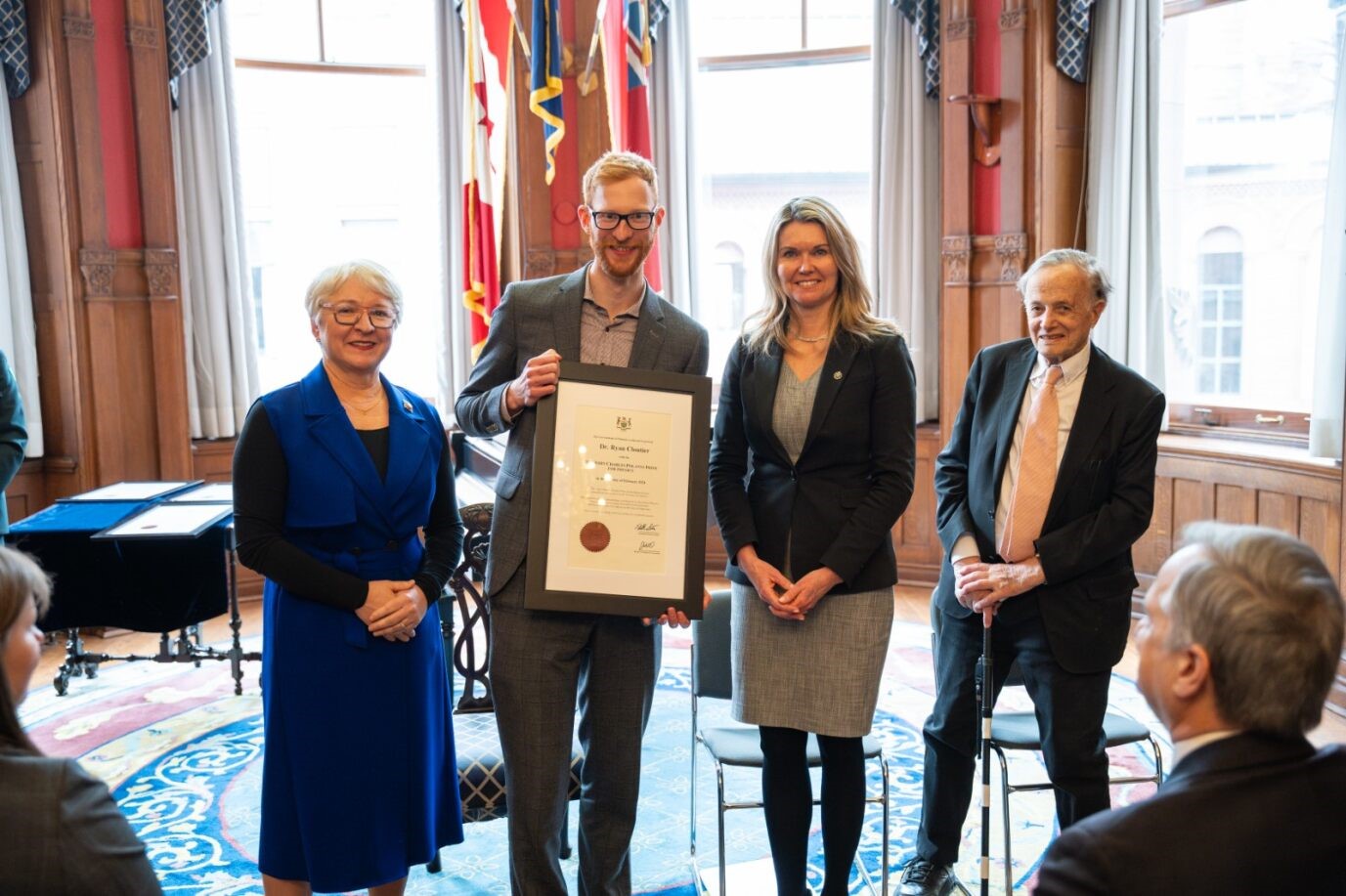Ryan Cloutier’s out-of-this world acceptance speech for Polanyi Prize in Physics

Ryan Cloutier, an assistant professor in the Department of Physics & Astronomy at McMaster, has been awarded the prestigious Polanyi Prize in Physics for 2023.
The prize is awarded annually to researchers from Ontario universities who are in the early stages of their careers in the fields of physics, chemistry, literature, economic science and physiology/medicine. You can read more about Cloutier’s research and achievements on McMaster’s Brighter World news website. Here, you can read the speech he delivered after being presented the award on Feb. 21, 2024.
Ryan Cloutier’s Acceptance Speech
When I was a PhD student across the street at the University of Toronto, the lore among astronomy grad students was that German astronomer Johannes Kepler, for his work in the 17th century relating planets’ orbital periods to their distances from the sun, was paid by his employer, a lifetime supply of beer.
 Now, astronomers are renowned for their ability to convert beverages, mostly coffee, into discoveries about the universe, and thinking back to grad school, receiving a lifetime supply of any stimulant would have been a dream come true.
Now, astronomers are renowned for their ability to convert beverages, mostly coffee, into discoveries about the universe, and thinking back to grad school, receiving a lifetime supply of any stimulant would have been a dream come true.
While I have not quite achieved that dream today, I am absolutely thrilled to accept this award and acknowledge that this may be the closest that I will ever come to earning something like Kepler’s lifetime supply, and I couldn’t be happier about that.
I first need to sincerely thank my many family members, in particular my parents, who are here today, as well as my wife, who is holding down the fort at home with a five-week old, and the many friends and mentors who have surely helped get me here today, probably in more ways than I can even imagine.
I also wish to thank the Ministry for this award, and for its recognition of the fundamental research that me and my research group at McMaster are doing to understand the formation and evolution of the galaxy’s most common planets around its most common stars.
Astronomers commonly refer to these planets as super-Earths and sub-Neptunes, and despite the fact that nature makes more of these planets than any other type of planet, we do not have any super-Earths or sub-Neptunes in our own solar system to study up close.
So, I turn to using a variety of telescope facilities, both on the ground and in space, to study the nature of these planets, and to assess the prospects for potentially habitable conditions on their surfaces.
I’ll close by saying that the wonders of the universe are all around us, I see it every day when I work with the next generation of professional astronomers, and I want to highlight that soon we’re all going to get the chance to witness a major celestial wonder in the form of a total solar eclipse happening in less than two months.
Yes, parts of southern Ontario will witness either a total, or a very nearly total solar eclipse on the afternoon of Monday, April 8th.
Don’t miss this rare event and please remember to never look directly at the Sun without appropriate eclipse viewing glasses. For more details, please visit McMaster’s 2024 eclipse
page.
Congratulations to the other awardees and thank you very much.
Office of the ProvostRelated News
News Listing

Provost and Budget Committee chair provide update to McMaster faculty and staff at information session
Office of the Provost
June 18, 2024

Daily News ➚
Message from the Provost on approval of McMaster’s 2024-25 budget
Office of the Provost
June 11, 2024

McMaster leaders to take on key national and international roles in 2024
Office of the Provost
January 24, 2024
